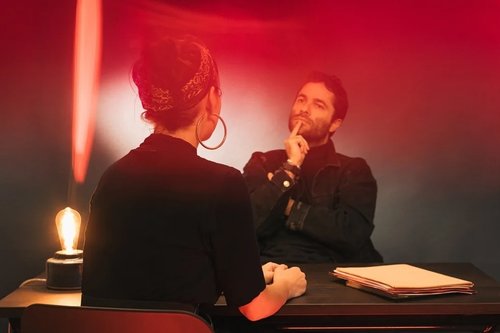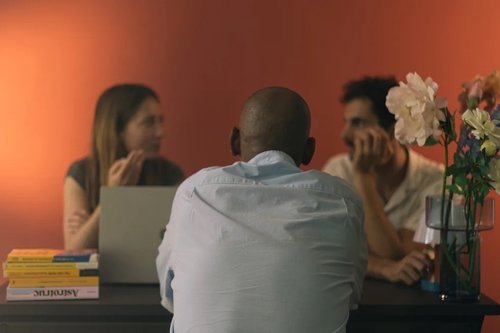Showing a critical mind in interviews: is it a good idea?
May 03, 2021
4 mins


Journaliste indépendante.
Few people enjoy being contradicted. But while offending your partner might earn you a death stare and a smaller piece of cake, offending a recruiter could cost you your dream job. That’s because there is no shortage of potential sources of disagreement during a job interview such as company strategy, managerial practices, or methods of implementing processes within a team.
Your remarks will greatly contribute to the success or failure of the interview. So how can you demonstrate your critical thinking skills without appearing arrogant? How do you challenge the company’s practices without coming across as a know-it-all?
What exactly is a critical mind?
Christian Godin’s Dictionary of Philosophy defines the critical mind as “an intellectual disposition and attitude consisting in admitting nothing as true or real that have not first been subjected to the test of demonstration or proof”. In short, it means remaining doubtful until there is a certainty.
Today, the expression sometimes has negative connotations. Some see it as systematically pointing out faults or issues, or “criticizing easily”. Yet critical thinking is the basis of scientific and philosophical reasoning. Who today would blame Galileo for doubting that the earth was flat? Critical thinking shows an ability to think independently and to understand the logical links between ideas. It allows us to distinguish between “belief” and “knowledge”. While belief is accessible to everyone, knowledge requires time and effort.
In business, critical thinking allows you to identify important problems and to make more thoughtful decisions. It also allows you to question an existing situation or the idea that “we’ve always done it this way” and then to propose alternatives. In short, the critical thinker is both the “thorn in the side” of a team and the one who pushes it forward.
The dangers of complacency
An interview is a delicate exercise. You want to portray yourself in the best possible light. So it’s natural to be reluctant to point out to the interviewer why they’re wrong about a subject, to challenge the projects they have put in place, or to question their working methods. However, ignoring your feelings so as to make yourself look good during an interview is a dangerous game.
The first risk is that it will create tension once you have the job. At work, as in love, it is not a good idea to create a false impression so as to achieve your ends. Trying to charm your latest Tinder match by telling them that you are also a big fan of hiking is risky. How many blisters on your feet can you endure before you admit you are more of a Netflix-loving couch potato? If you silence your critical mind so that you can make a good impression, your future manager may end up believing that you are a big fan of their ideas, methods, or practices. So it will be difficult to correct that impression once you start work. And if you do, they may feel short-changed and that their way of working is suddenly being questioned. So it is always wiser to be upfront if you disagree on the fundamentals, starting at the interview.
The second risk is that you may not be taking advantage of the opportunity of being tested by your recruiter. Some companies test the candidates’ critical thinking skills in an obvious way such as through problems or case studies. Others do it more subtly. If you are applying for a junior position and have little experience to discuss, your ability to analyze information, identify a “problem” and tell the recruiter about it, maybe the only way they can tell whether you are the right candidate or not.
A critical mind, yes. But with a spoonful of sugar
It’s not always easy to get this right. A critical mind in its raw state can be very badly perceived by the person you are talking to and you may be described as “pretentious”, “overly fastidious”, or a “buzzkill”. Here are some simple tips to ensure that this quality is perceived as an asset.
Think before you speak. Always take a few seconds to make sure you have understood the other person’s point of view before challenging them––even if it means asking them to rephrase what they have just said if you are in doubt.
Open a debate. Just blurting out, “I am completely against this practice” is a bit blunt. Phrase your reservations in such a way as to open a dialogue: “I see things differently. In my experience, I’ve noticed that…” You can also simply ask if the person you are talking to would like to discuss the subject: “I see things differently. Can I share my view with you?” Asking a question shows that you are open-minded and not just trying to impose your opinion.
Be certain of what you are talking about. Nothing is worse than a recent graduate who thinks they know everything after reading two books and taking three hours of classes. If you want to challenge your interviewer, you must have a solid knowledge of the subject and experience in the field to support your thesis. If this isn’t the case, phrase your observations in the form of surprise rather than disagreement: “I am surprised that you use method X, I have heard of method Y which apparently involves…”
Do not try to “win”. Your aim is not to show your interviewer that you are smarter than they are, but rather to showcase your analytical skills, expertise, and knowledge of the subject.
Pick your battles. If your recruiter makes a mistake that is obvious or lays out an idea that you think is flawed, always ask yourself if the point is worth making. An interview is often too short. Leave aside minor disagreements that will waste time over nothing and choose to focus on the issues that are important to you or that could really affect your work.
Know when to stop. Stubbornness can be discouraging to a recruiter. If you see that the recruiter is showing signs of being annoyed or is cutting the conversation short, do not continue to argue. If you have not been able to cover important points, you can always get back to them by e-mail or in a future exchange.
Using your critical thinking skills in interviews shows both your thinking skills and your willingness to improve the company’s practices. By expressing yourself sincerely, you ensure that everyone comes out on top and that neither you nor the company will be frustrated once you are in the job. Because, yes, critical thinking is an asset. And being able to disagree without being disagreeable, if it is managed well, can be very healthy and constructive.
Translated by Kalin Linsberg
Photo: Welcome to the Jungle
Follow Welcome to the Jungle on Facebook, LinkedIn, and Instagram, and subscribe to our newsletter to get our latest articles every day!

More inspiration: Ace your job interview

Why are you leaving your job? Here's how to nail the answer
Caught off guard by 'Why are you leaving your job?' Here's how to flip this tricky question into a spotlight on your goals and potential.
Dec 24, 2024

Standing out in an interview: Creative responses to common questions
Answering common interviews with common responses isn't going to get you far in today's job market. Here's how to truly stand out!
Nov 26, 2024

The Pratfall Effect: Can screwing up in a job interview make you more likable?
Mistakes you make in a job interview could actually work to your advantage ...
Oct 14, 2024

How to bring up your long-term career goals in an interview
Be honest but strategic. The key is aligning your goals with the role while showing flexibility and ambition. Avoid faking it!
Sep 24, 2024

Is honesty the key to discussing your weaknesses?
Are your weaknesses holding you back in an interview? A bit of honesty can flip the script and make your flaws work in your favor.
Aug 21, 2024
The newsletter that does the job
Want to keep up with the latest articles? Twice a week you can receive stories, jobs, and tips in your inbox.

Looking for your next job?
Over 200,000 people have found a job with Welcome to the Jungle.
Explore jobs